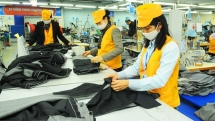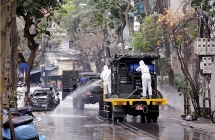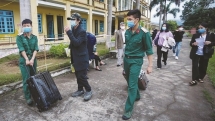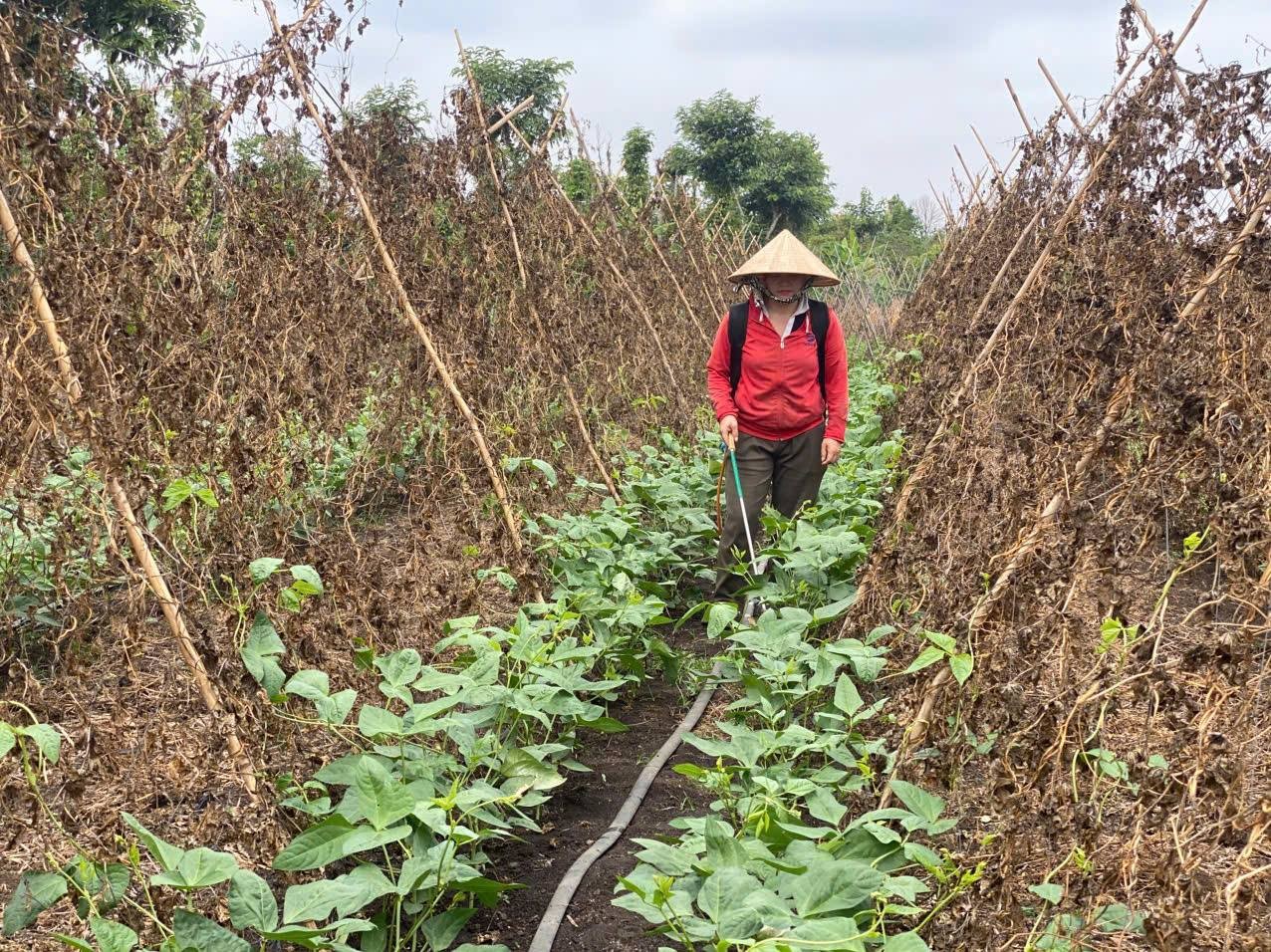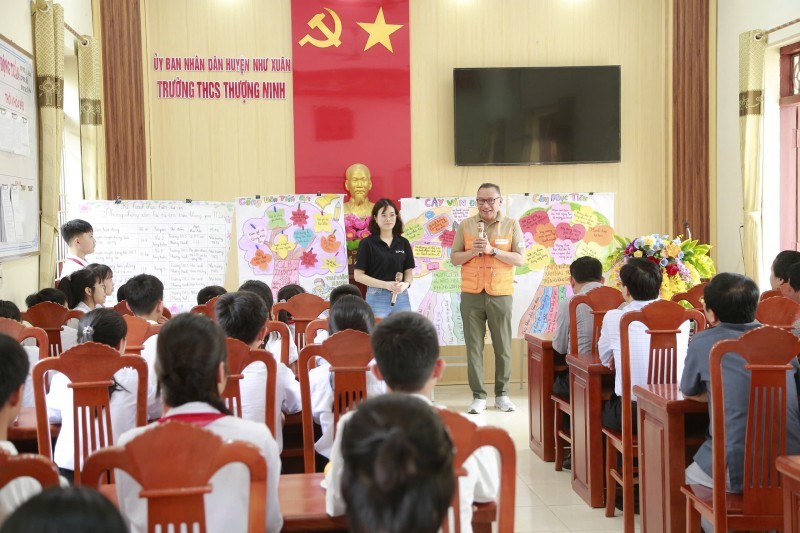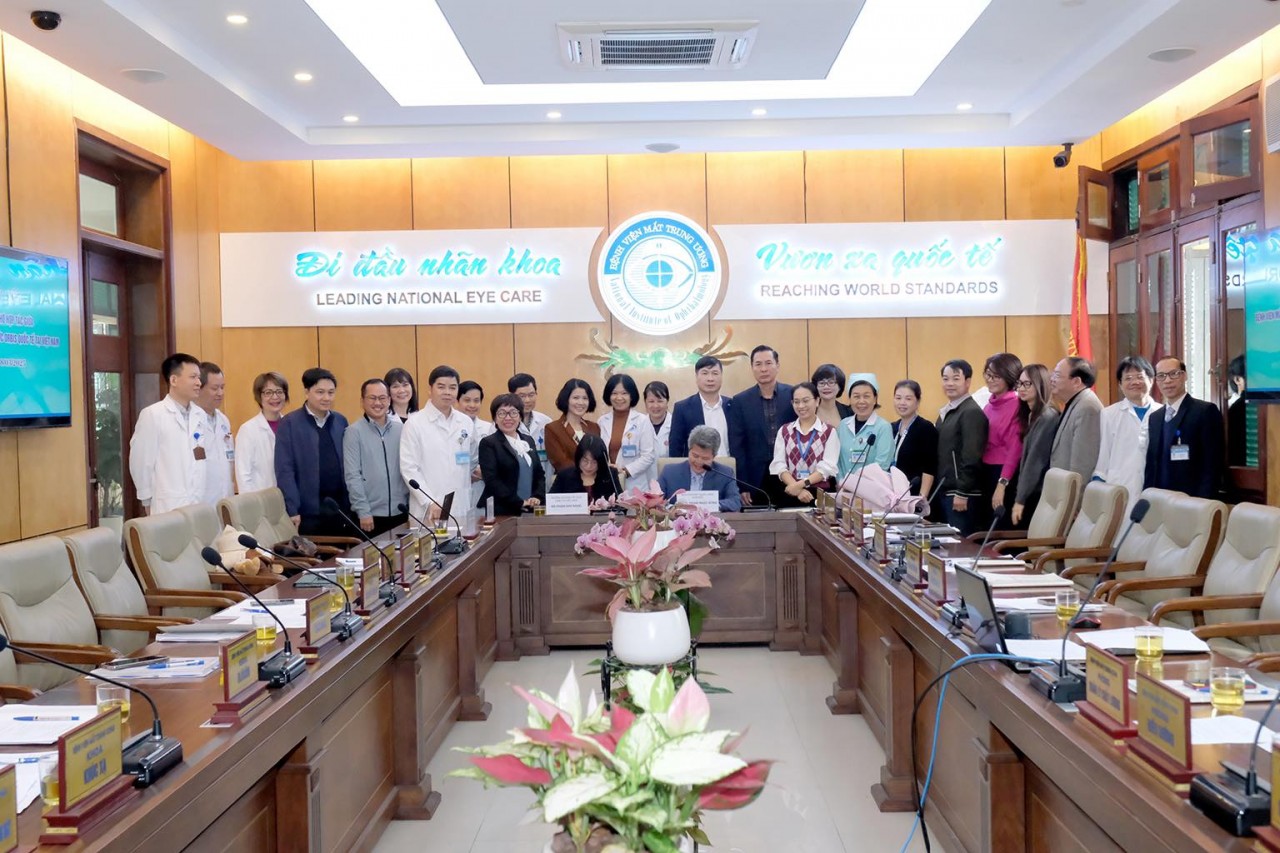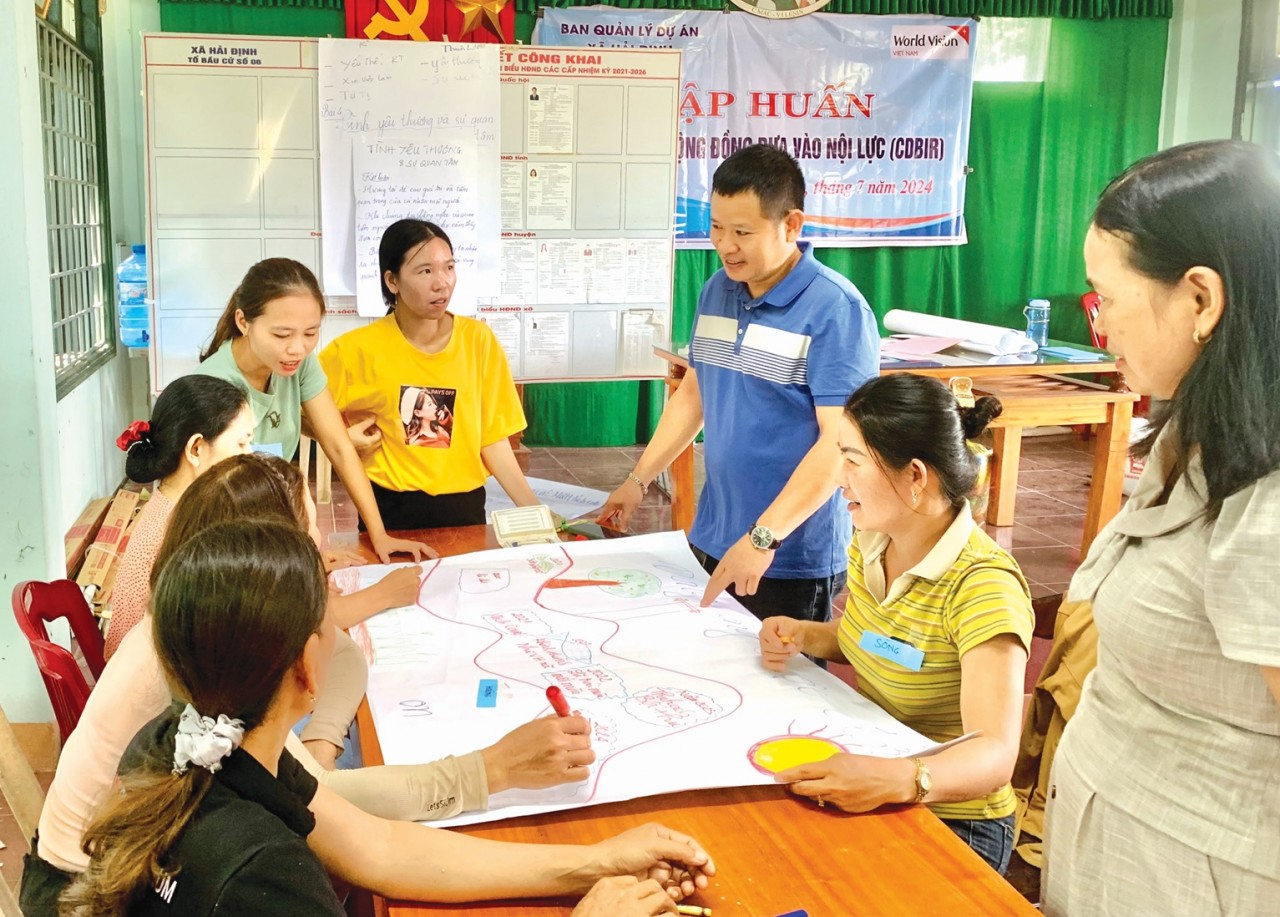COVID-19 epidemic poses a threat to Vietnam’s most vulnerable
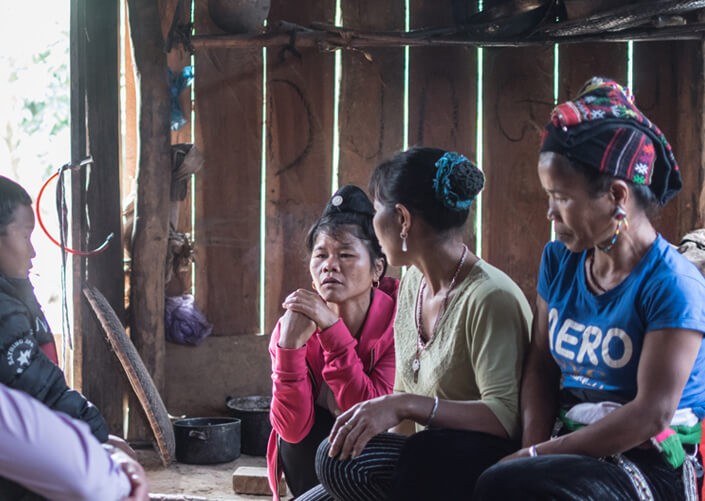 |
| Blue Dragon is working with local communities and authorities to ensure early detection of children at risk who need support…and is providing support to children and youth whose situations have worsened because of the current epidemic. |
Blue Dragon, the well-known charity dedicated to rescuing kids in crisis, is adapting rapidly in order to respond to these additional needs and risks.
With over 1,200 km (745 miles) of shared land border with China, Vietnam took preventive measures to protect its citizens from the very beginning of the outbreak in January. This intervention has proven to be effective so far, with a remarkably low number of infections.
However, after nearly two months of measures in place, these restrictions have led to a significant slowing of the economy. And the people most affected by this are those who were already vulnerable.
Rural children, in danger
Rural mountainous regions bordering China in northern Vietnam are particularly vulnerable to the impacts of this epidemic. In provinces such as Ha Giang and Dien Bien, most of the population belong to ethnic communities who already struggle to make ends meet.
Because these are remote areas where access is difficult, many children in Ha Giang and Dien Bien study in boarding schools. This eases their families’ financial burdens, as the schools not only ensure children have a safe place to sleep, but also adequate daily nutrition.
With most schools closed since mid-January, however, that safety net is now gone and families have extra mouths to feed. This creates an immediate risk of young people leaving home to find employment and never returning to school again.
This was the case for two brothers in Ha Giang province. Aged 5 and 7, the children’s mother left years ago and their father struggles with alcoholism. Lacking a caregiver to provide for them, when the schools closed the boys resorted to begging on the streets.
When word of their situation reached Blue Dragon we coordinated with local authorities to find a suitable foster family in the area. The children are now safe in their new home and a generous donor is sending money monthly to ensure the foster family can cover their needs.
Their situation isn’t unique in this area, where poverty is widespread. Before the epidemic, authorities had already identified many children in similar situations. With schools closed, there is a very high probability that cases like theirs will become more common.
Ha Giang province and China share a long land border which is now closed, ending trade and preventing Vietnamese people from legally crossing for day laboring work. Tourism and hospitality, mainstays of the local economy, have been decimated.
Young people from rural provinces who have been living and working away from home even before the epidemic are also finding themselves out of work or with reduced salaries. In fact, Blue Dragon is providing financial support to young people from Ha Giang who work in Hanoi restaurants and have been struggling due to severe pay cuts.
As a result of the current hardship, “government agencies in Ha Giang province estimate that around 1,600 children are experiencing a similar situation to that of the two brothers Blue Dragon supports,” says Nam Xuan Pham, manager of Blue Dragon’s program in the area.
In Dien Bien province, where many parents have lost their jobs or been forced to leave in order to find work, the situation is similar. There, Blue Dragon regularly provides food staples to families in extreme poverty, a need that has increased dramatically since the outbreak began.
Illustrating the dangers faced by children when their schools have closed, Blue Dragon is currently searching for a 13-year-old girl from Dien Bien who left her home following a promise of work in another province.
This girl is in Grade 8, the age at the highest risk of falling into child labour in Dien Bien. “With primary and secondary schools closed, the students in the last years of secondary are the most likely to leave school to start working,” explains Thuy Thu Nguyen, who manages Blue Dragon’s work in Dien Bien province.
Homeless children in urban areas, at risk of infection
Blue Dragon’s work with street children has been ramped up due to the coronavirus epidemic. In the past month alone, Blue Dragon’s street-outreach team has met 21 homeless children who are now in our care.
In addition to all the dangers living on the streets poses, homeless young people now also face risk of infection, which gives Blue Dragon’s outreach work even greater urgency.
Many of these children come to the city running away from poverty in rural provinces, hoping for a better life. And so, in the midst of the financial turmoil, we expect that the number of children travelling to Hanoi will only continue to increase.
Predictions are no better for those children escaping from domestic abuse or violence. Being confined at home while schools remain closed will add to the danger these violent environments create and boost their need to run away.
Girls, more vulnerable to exploitation
School closures, along with the spike in poverty, translate into higher vulnerability to human trafficking and early marriage for Vietnamese girls.
Schools and teachers are cornerstones of Blue Dragon’s trafficking prevention work. Education ensures girls can build a brighter future for themselves, as they acquire the knowledge and skills that will allow them to access a career path towards higher-paying jobs to break the cycle of poverty.
Importantly, schools play a major role in reporting cases of children who are at risk of being trafficked.
“Blue Dragon has an early warning system in place for the communities where we work, in order to ensure they all know about human trafficking and how to report a case,” explains Luong Thi Hong Le, Blue Dragon’s anti-trafficking coordinator.
“In schools, teachers and students learn about this issue and hold monthly meetings where they can report if one of their friends wants to drop out of school to start working, or if someone contacts them with suspicious offers.”
Luong fears as the economy worsens and more people lose jobs, “traffickers may take advantage of this situation to offer job opportunities and trick people into going to China.” And even with border crossings being highly restricted, “traffickers may still traffic victims internally for prostitution,” she adds.
Eary marriage of teenage girls in rural areas is another concern. When girls stay in school, they are educated about the implications of quitting school to marry young, a tradition that is deeply ingrained in some of Vietnam’s most remote provinces. Traditionally, these weddings are arranged over the Lunar New Year holiday, when many festivals take place. Due to both the extension of this holiday with school closures and the impact this has had on Blue Dragon’s early warning system, the likelihood of these marriages has increased.
Trapped in slavery
The COVID-19 outbreak has impacted Blue Dragon’s rescues of trafficked girls and women, causing a suspension of most operations due to heavy travel restrictions within China.
Blue Dragon is currently in contact with 29 girls and women who are being held against their will in China and have called for help. As calls continue to come, that number will grow until movement is once again possible.
Despite the challenges, we have succeeded in rescuing 4 Vietnamese women and a 5-year-old girl and bringing them across the border into government-run quarantine centres. We also worked with authorities on bringing another woman across the border after her rescue by Chinese police.
Other young women who called for help and faced immediate danger to their lives have been assisted to escape but remain in hiding in China until we can see a way to get them to the border.
“We’ve had to slow down our rescue operations, but we are not giving up hope,” says Michael Brosowski, Blue Dragon’s founder and co-CEO./.
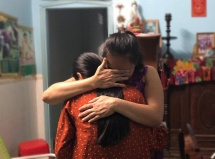 | 15 surprising facts about Blue Dragon As Blue Dragon, the well-known charity dedicated to rescuing kids in crisis marks its 15th year of changing lives, let's embark on a journey to discover 15 behind-the-scenes facts about ... |
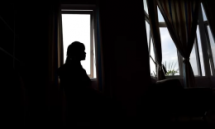 | 80 percent of Vietnam human trafficking victims end up in China In most cases of human trafficking uncovered since 2016, the victims were sold to China, according the Ministry of Public Security. |
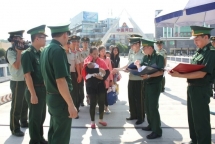 | Nearly 7,500 victims of human trafficking rescued in 5 years Nearly 7,500 victims of human trafficking were rescued by competent agencies between 2012 and 2017, and all of them have received support to reintegrate into ... |
Recommended
 World
World
Thailand Positions Itself As a Global Wellness Destination
 World
World
Indonesia Accelerates Procedures to Join OECD
 World
World
South Korea elects Lee Jae-myung president
 World
World
22nd Shangri-La Dialogue: Japan, Philippines boost defence cooperation
Popular article
 World
World
Pakistan NCRC report explores emerging child rights issues
 World
World
"India has right to defend herself against terror," says German Foreign Minister, endorses Op Sindoor
 World
World
‘We stand with India’: Japan, UAE back New Delhi over its global outreach against terror
 World
World

